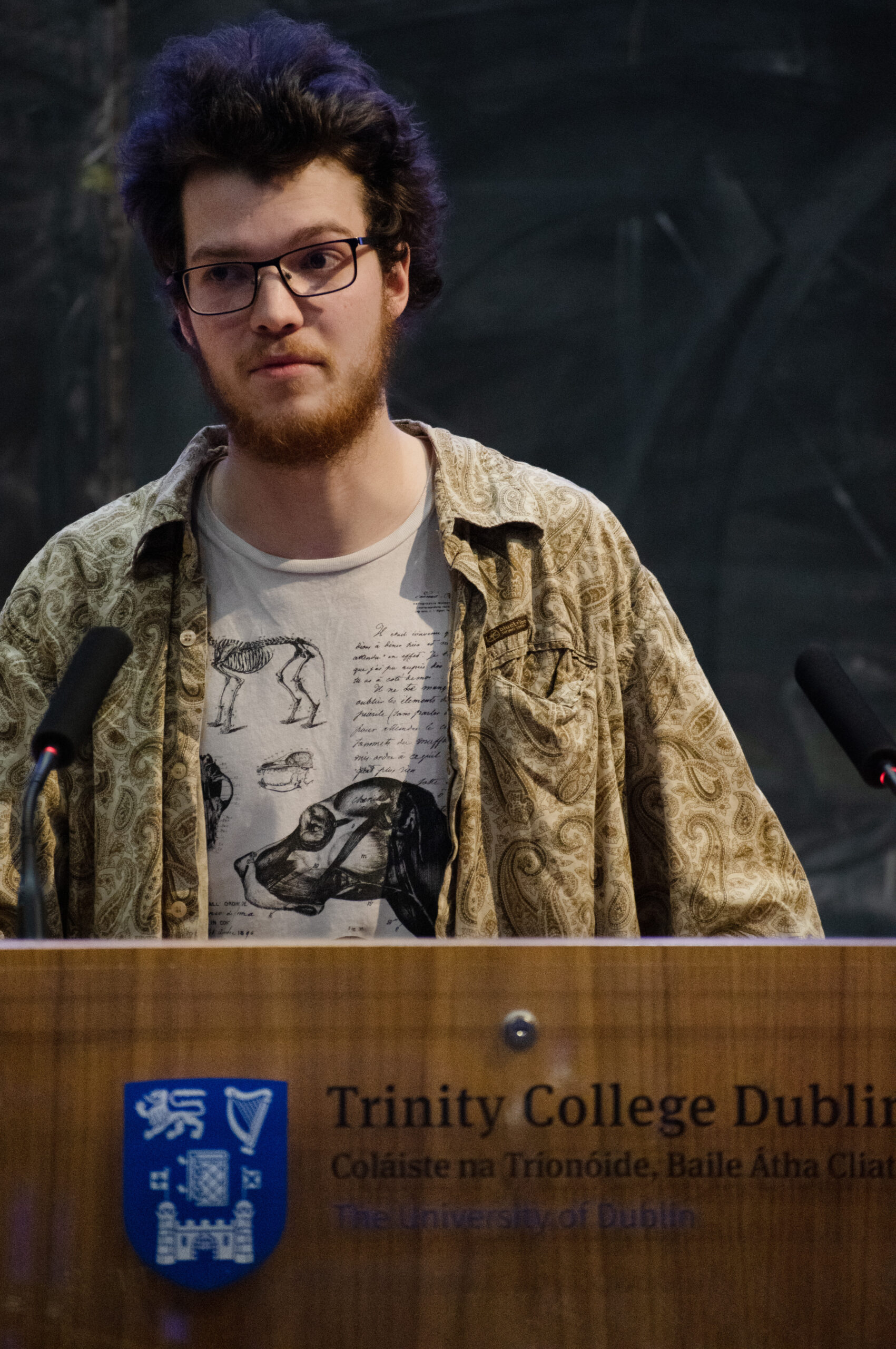Lecture capture is a technology used by lecturers to record in-person classes and then make them available via technological means to students. As our third-level institutions continue to grapple with advances in the digital age, this has invited controversy. Students are calling for lecture recordings on a basis of equity in access to education. However, teachers and teacher unions have opposed this due to concerns around higher-education institutions re-running recorded lectures to break industrial action. The calls to introduce universal lecture recording have often been made without understanding the complexities therein, and thus little to no progress has taken place. Namely, at our College, there is no all-around access to lecture recordings. Ultimately, the antagonism must be dissolved through the power of student-staff solidarity.
On one hand, the student perspective is that lecture recordings are essential for equitable access to education. This is specifically the case for underrepresented groups. Working students, student parents, mature students and students with disabilities, chronic illnesses and neurodivergence stand to benefit massively from the ability to access lectures anytime and anyplace at the touch of a button. Students with language barriers have reported benefiting from recordings, as have those with attention difficulties and this is not to mention that during a housing crisis, access to lecture recordings would be a welcome measure for students who are forced to commute for hours back-and-forth, as pointed out by the Students’ Union (TCDSU) in 2022. In general, the positives of being able to revise for exams and assessment without needing support from the lecturer are well-known. Holistically, the approach of Universal Design for Learning (UDL), which features lecture recordings as one of its aims, is the recognition that each student is a unique learner with unique ways in which they process information. The recognition that there is no one-size-fits-all design for learning is shared by the latest research on education, yet holistic alternatives lag behind in implementation.
On the other hand, the lecturer perspective is that lecture recordings are adverse to labor interests. As a result of universities insisting on performance rights, and the possibility of senior management running recorded lectures during strikes, unions like the Irish Federation of University Teachers (IFUT) have opposed their widespread use. The use of recordings by senior management for censorship, performance reviews and micro-management of lecturing staff has also sparked concerns, because any tool in the hands of employers can and will be used to degrade working conditions and salaries. This comes as the third-level sector is under severe pressure, with 50% of lecturing staff being on casualized, insecure and low-paying contracts. The interests of a trade union is to safeguard its members’ interests, and that is precisely what is being done when they advocate against lecture recordings. Lecture recording is a technology with potential for good, especially from an accessibility perspective, but has now become territorialized by capital to be a weapon in the struggle of the exploited and the exploiters.
Despite the complexity of the issue, calls for lecture recordings have emanated from a profoundly ignorant, if well-intentioned, position. The narrative revolves around the struggle of the student against the lecturer, who is deemed elitist, and a Luddite who refuses to move with the times. The hinterland of this approach is mistaking the part for the whole: the lecturer refuses to record their lecture as a result of their individual attitude, thus disadvantaging the student. Therefore, having failed to identify the root cause of the issue which lies in the fight against wage exploitation, students cannot draw the correct conclusions and forge the necessary alliances to progress the issue of lecture recordings.
As such, we must unravel what is happening. Nothing is as it appears. As with other issues we face, the forces of capital hold sway, a set of hidden social relations that dictate outcomes. By linking the part to the whole we can reconcile seemingly contradictory agents into a higher synthesis. Students being pitted against their lecturers is false consciousness. It seeks to conceal the opposing interests of the lecturer and senior management. This, in turn, is class struggle over the production process. Third-level institutions are places of production where the forces of labour and capital are in conflict, and as such suffer from the same tendency to drive down wages and boost profits that rules in wider society. This has only intensified since the 2010s through growing commercialisation.
Therefore, to overcome this impasse, students and staff must unite and fight for public, free and fair education in solidarity with academic and professional workers in our institutions. What was once thought of as an essential antagonism between students and staff is now dissolved by uniting under the same banner and recognising senior management as the oppressive force. This will not happen instantly, but the speed of the process of moving towards the dissolution will lockstep the strength of solidarity and closeness to victory against the capitalist university. The lesson is that we need to employ holistic thinking to ease this deadlock, and have faith that by marching shoulder to shoulder with our allies in the trade unions, we can, instead of clutching at straws with no success, bring forth societal transformation for the better.








